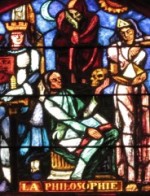Candidates short-sighted war on liberal arts
- Political attacks on philosophy prompt a philosopher to reply
- Liberal arts education is a key to progress in troubled times
- Citizens benefit from training in critical thinking and moral educatio
Last month, Jeb Bush suggested that a liberal arts degree was a waste of time. “That philosophy major thing,” he said, “that’s great, it’s important to have liberal arts … but realize, you’re going to be working at Chick-Fil-A.”
Marco Rubio made a similar point at a recent debate. He said we need “more welders and less philosophers.”
But in these troubled times, we need more philosophical reflection and less heated rhetoric, more careful analysis and fewer glib one-liners. A broad liberal arts education teaches us to think. Good thinking is essential for citizens of a free, self-governing democracy.
Consider the question of war against the Islamic State.Sen. Rubio describes this as a “clash of civilizations.” He said, “They do not hate us because we have military assets in the Middle East – they hate us because of our values. … They hate us because we have freedom of speech, because we have diversity in our religious beliefs. They hate us because we’re a tolerant society.”
Claims like these deserve critical scrutiny. Is this really a clash of civilizations? How can we know why someone hates us? And what should we do about it? To answer those questions, we need philosophers, historians and students of religion and culture.
The study of the world’s religions sheds light on the idea of a clash of civilizations. Muslims, Jews and Christians share common roots and a long history of intolerance and warfare. These traditions share an ideal of holy war, crusades and jihad. They also contain a common hope for peace, shalom or salaam. Understanding the similarities and differences among these traditions develops through broad historical, cultural and philosophical inquiry.
A liberal arts education also helps us understand the value of religious toleration. Secular systems of government evolved in recent centuries as a response to ongoing religious violence. Theocratic regimes are throwbacks, seemingly at odds with the general logic of historical progress.
But does history have a logic? And are we wise enough to figure out what to do next? Historians warn against such broad generalizations. Consider this: the Sykes-Picot agreement that divided the Middle East among European powers was hammered out 100 years ago. A century of European and American intervention has left us with a mess. Perhaps we are not as wise as we think we are.
Jeb Bush has urged an all-out war against the Islamic State. But in order to decide that war is justified, we need a substantial amount of philosophical reflection. We need to ponder – among other things – the justice of the cause, the question of proportionality, the issue of how noncombatants will fare and the plan for postbellum peace.
NO MATTER THE TRADE OR PROFESSION, WE NEED CITIZENS WHO UNDERSTAND THAT WAR, TERROR AND HATE DESTROY UNDERSTANDING AND KILL HOPE.
Understanding all of that requires training in ethics, political science and history. To make sure that our soldiers fight morally appropriate wars, we need better liberal arts education – not less of it.
Indeed, a liberal arts education is likely part of the long-run solution for the war on terrorism. The root cause of war and terrorism is, after all, bad philosophy. Extremism, demagoguery, ignorance and moral blindness are cured through education. The best cure for bad ideas is better ones.
A broad liberal arts education produces critical, virtuous and responsible citizens. Science grounds us in facts about geography, biology and the physical world. History provides context for understanding current events, while reminding us that progress can be made. Music, literature and poetry deliver transcendent joys that unite us despite our differences. The study of the world’s religions shows us that there are diverse paths to a meaningful life. Ethics teaches us to distinguish good from evil. And philosophical training reminds us to be curious, courageous, compassionate and modest about what we know.
Good education helps to create good people. In order for society to function, we need welders – fast food cooks, lawyers, and even politicians – who are honest, trustworthy and kind. No matter the trade or profession, we need citizens who understand that war, terror and hate destroy understanding and kill hope.
It is true that there are very few paying jobs for full-time philosophers. But welders, cooks, and politicians – indeed all citizens – benefit from philosophical insight and broad education. We need better thinking and more enlightened citizens – more liberal arts and less hot air.
Read more here: http://www.fresnobee.com/living/liv-columns-blogs/article46737230.html#storylink=cpy


